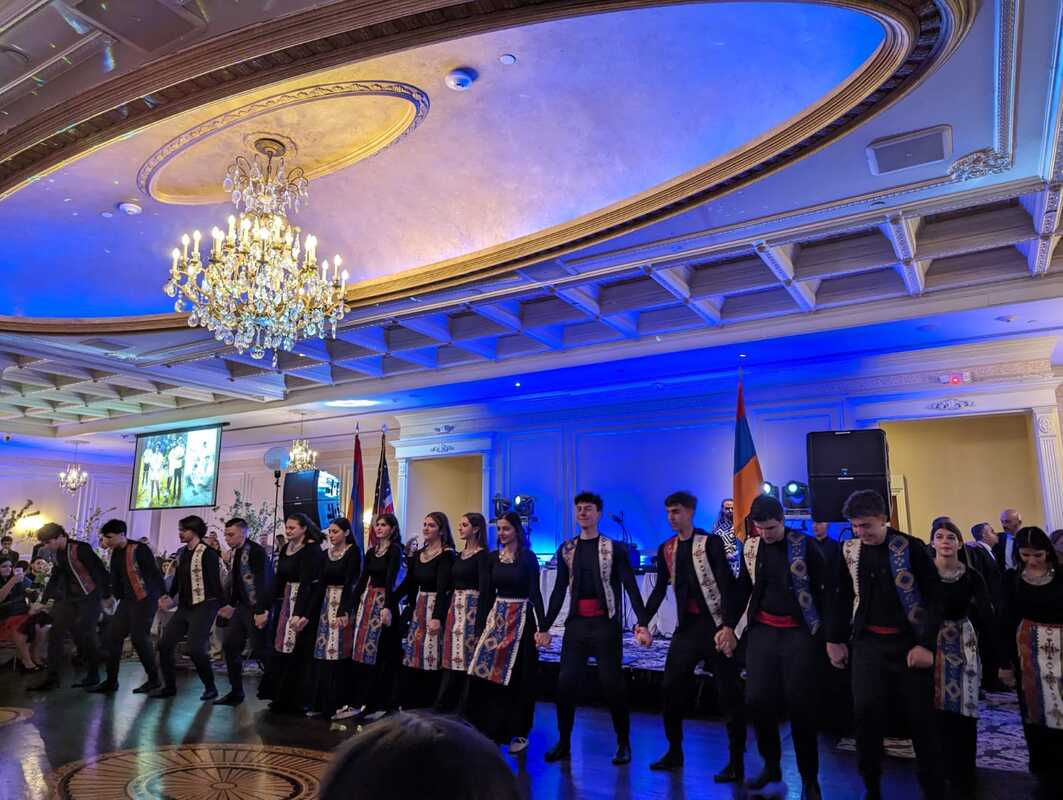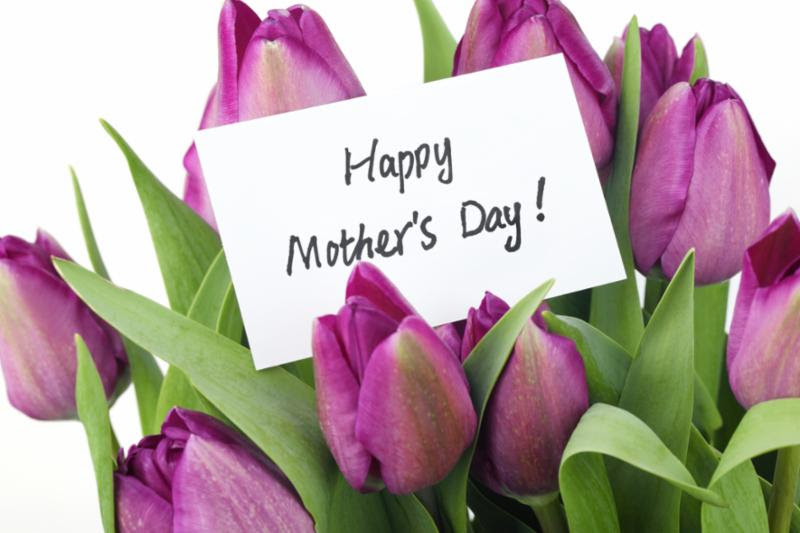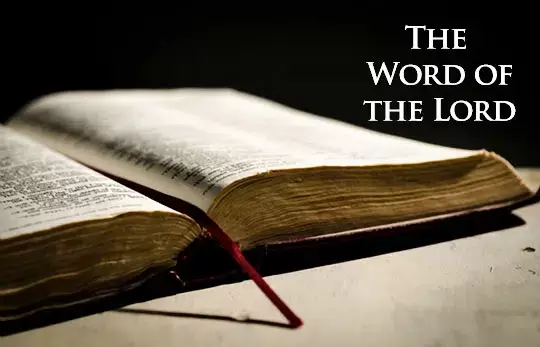As an Armenian, I have been closely following the recent dramatic events in Armenia. For the first time since the battle of Sardarabad in 1918, a senior clergy member of the Armenian Apostolic Church is leading a movement to end the one-sided concessions that the Prime Minister of the Republic of Armenia has been making since November 2020.
I have been keeping up with the latest developments in Armenia by browsing through various news websites and social media platforms. Among the content that caught my attention were videos featuring interviews and presentations by Armenian clergymen. As a clergyman myself, I am aware that my judgment may be biased, but as a human being, I felt spiritually uplifted listening to the passionate responses of Archbishop Galstanyan and Archbishop Achabahyan. Their deep thinking is influenced by Christian spirituality and the theology of our church. Additionally, I found Fr. Mesrop Aramian’s discussion on the etymology of the word 'fatherland' or 'Hayrenik' particularly interesting. It originates from the biblical concept of the resting place of our ancestors. Therefore, the soil of the fatherland is considered sacred ground. I recently picked up a book called The Pastor, a Memoir by Eugene Peterson, which I had read almost ten years ago. As I read through it again, Peterson's thoughts on his "homeland" struck a chord with me, especially considering the significant losses that we as Armenians have experienced since the Armenian Genocide. Peterson writes about his home as a place that gathers stories, relationships, and memories. “This two acres of sacred landscape in the mountains of Montana has provided the material conditions for preserving a continuity of story in the course of living in eighteen residences located variously in five states and two countries. It has provided a stable location in space and time to give prayerful, meditative, discerning attention to the ways in which my life is being written into the comprehensive salvation story. It is the holy ground from which choke-cherry blossoms scent the spring air and giant ponderosa pines keep sentinel watch in the forest. It opens out on an immense glacier-cut horizon against which the invisibilities of Father, Son, and Holy Spirit form a believing imagination where the “inside is larger than the outside.” ― Eugene H. Peterson, The Pastor: A Memoir.
Paterson's words would make perfect sense to me if I compare his experience with my own connection to my ancestral home in Kessab. However, I cannot help but wonder why I feel such a strong connection with Armenia. After all, it is not the place where I was born or raised, and I have only visited it a few times. Yet, I couldn't sleep last night, as I kept thinking about what was happening in Armenia. This is what I call my "Unnamed Feeling" (borrowing the idea from Metallica), which I experience when the struggles and achievements of our homeland have a powerful effect on me mentally and emotionally. After all, perhaps Love is the name of that feeling - the love for my nation (Azkasiroutyoun) and the love for my motherland (Hayrenasiroutyoun). However, it's important that I remind myself that love also makes us susceptible to pain and suffering, something that I've emphasized repeatedly in my sermons over the years.
I have been keeping up with the latest developments in Armenia by browsing through various news websites and social media platforms. Among the content that caught my attention were videos featuring interviews and presentations by Armenian clergymen. As a clergyman myself, I am aware that my judgment may be biased, but as a human being, I felt spiritually uplifted listening to the passionate responses of Archbishop Galstanyan and Archbishop Achabahyan. Their deep thinking is influenced by Christian spirituality and the theology of our church. Additionally, I found Fr. Mesrop Aramian’s discussion on the etymology of the word 'fatherland' or 'Hayrenik' particularly interesting. It originates from the biblical concept of the resting place of our ancestors. Therefore, the soil of the fatherland is considered sacred ground. I recently picked up a book called The Pastor, a Memoir by Eugene Peterson, which I had read almost ten years ago. As I read through it again, Peterson's thoughts on his "homeland" struck a chord with me, especially considering the significant losses that we as Armenians have experienced since the Armenian Genocide. Peterson writes about his home as a place that gathers stories, relationships, and memories. “This two acres of sacred landscape in the mountains of Montana has provided the material conditions for preserving a continuity of story in the course of living in eighteen residences located variously in five states and two countries. It has provided a stable location in space and time to give prayerful, meditative, discerning attention to the ways in which my life is being written into the comprehensive salvation story. It is the holy ground from which choke-cherry blossoms scent the spring air and giant ponderosa pines keep sentinel watch in the forest. It opens out on an immense glacier-cut horizon against which the invisibilities of Father, Son, and Holy Spirit form a believing imagination where the “inside is larger than the outside.” ― Eugene H. Peterson, The Pastor: A Memoir.
Paterson's words would make perfect sense to me if I compare his experience with my own connection to my ancestral home in Kessab. However, I cannot help but wonder why I feel such a strong connection with Armenia. After all, it is not the place where I was born or raised, and I have only visited it a few times. Yet, I couldn't sleep last night, as I kept thinking about what was happening in Armenia. This is what I call my "Unnamed Feeling" (borrowing the idea from Metallica), which I experience when the struggles and achievements of our homeland have a powerful effect on me mentally and emotionally. After all, perhaps Love is the name of that feeling - the love for my nation (Azkasiroutyoun) and the love for my motherland (Hayrenasiroutyoun). However, it's important that I remind myself that love also makes us susceptible to pain and suffering, something that I've emphasized repeatedly in my sermons over the years.
AYF Anniversary Celebration
Last Saturday I joined the NY Armenian community in celebrating the centennial anniversary of the NY AYF Hyortik chapter - a momentous event exalting the achievements of a youth organization that has positively impacted the life of our Armenian community in the past 100 years. In my congratulatory message printed in the celebration booklet, I shared the following thoughts: “As the pastor of St. Sarkis Church, I am delighted to report that our partnership with the members of the AYF "Hyortik" Chapter has always been fruitful. The mutual respect and spirit of collaboration that exist between our church and the AYF have been beneficial to both parties, and it brings me great joy that St. Sarkis Church has become the new home to host various programs that the AYF "Hyortik" Chapter has organized over the years. These programs include sleepovers, dinner dances, educational events, and fundraisers. On a personal note, I am also proud that my children are a part of this great organization”.
The most enjoyable moment of the evening occurred when the 400-plus guests in attendance witnessed the debut performance of the New-Yeraz group. I felt an expansion in my chest as I watched the children of our community, who are now young adults. Through the dance experience, they have not only learned the steps of traditional Armenian dances but have also found a deeper connection with their culture and with each other.
Last Saturday I joined the NY Armenian community in celebrating the centennial anniversary of the NY AYF Hyortik chapter - a momentous event exalting the achievements of a youth organization that has positively impacted the life of our Armenian community in the past 100 years. In my congratulatory message printed in the celebration booklet, I shared the following thoughts: “As the pastor of St. Sarkis Church, I am delighted to report that our partnership with the members of the AYF "Hyortik" Chapter has always been fruitful. The mutual respect and spirit of collaboration that exist between our church and the AYF have been beneficial to both parties, and it brings me great joy that St. Sarkis Church has become the new home to host various programs that the AYF "Hyortik" Chapter has organized over the years. These programs include sleepovers, dinner dances, educational events, and fundraisers. On a personal note, I am also proud that my children are a part of this great organization”.
The most enjoyable moment of the evening occurred when the 400-plus guests in attendance witnessed the debut performance of the New-Yeraz group. I felt an expansion in my chest as I watched the children of our community, who are now young adults. Through the dance experience, they have not only learned the steps of traditional Armenian dances but have also found a deeper connection with their culture and with each other.
Mother’s Day
This Sunday is Mother’s Day. The Lebanese American Poet KAHLIL GIBRAN reflects on motherhood in the following poem:
The most beautiful word on the lips of mankind is the word “Mother,”
and the most beautiful call is the call of “My mother.”
It is a word full of hope and love,
a sweet and kind word coming from the depths of the heart.
Our relationship with our parents can be challenging at times. I found a brief essay by psychotherapist Esther Perel that I'd like to share.
“For those grieving their mothers, wishing to be mothers or, like me, have complicated relationships with their mothers, Mother's Day can bring up a lot of mixed feelings. You may wonder how to celebrate a mother towards whom you have ambivalent feelings.
I've spent countless hours addressing this very dilemma in my therapy office.
And I, myself, can relate. My own mother believed that it was my friends and my neighbors who would build me up and tell me all the good things about me. It was her job to do the rest — to tell me what the others wouldn’t. And as a result, she rarely had a positive thing to say to me my entire life.
Yet she is also the person who taught me to sing and dance. She had an amazing sense of humor. And it was when I was able to embrace the duality of my feelings for her that our tumultuous relationship shifted.
I learned to hold both the part of me that loved her and the part that was angry at her. After years of training in family therapy, I applied some useful disengagement techniques: I learned not to explode when her criticism began. Instead, I’d kiss her on the cheek and thank her for trying to make me a better person. That shift changed everything for us in her later years.
After my mother died, I began writing my first book, Mating in Captivity. It was the first time I did something I wasn't sure I could do. I had always had to have enough confidence for two—for me and for her anxiety, even while her criticisms echoed in my head fueling my self-doubt. Teaching myself to hold the duality of my ambivalent feelings for her while she was alive helped me tremendously after she died. I allowed myself to grieve the mother I loved and I allowed myself to let go of her view of me.
In her absence, I opened myself up to others who showed me that motherly care doesn't just come from a mother. Sometimes it comes from the friend who says “come stay at my place and I’ll take care of you.” Or, “Let me talk to your child.”
To me, today is a day to celebrate not just our mothers, but all those who have been motherly. Friends, siblings, family members — who has been there for you? And how will you be there for others?
This Sunday is Mother’s Day. The Lebanese American Poet KAHLIL GIBRAN reflects on motherhood in the following poem:
The most beautiful word on the lips of mankind is the word “Mother,”
and the most beautiful call is the call of “My mother.”
It is a word full of hope and love,
a sweet and kind word coming from the depths of the heart.
Our relationship with our parents can be challenging at times. I found a brief essay by psychotherapist Esther Perel that I'd like to share.
“For those grieving their mothers, wishing to be mothers or, like me, have complicated relationships with their mothers, Mother's Day can bring up a lot of mixed feelings. You may wonder how to celebrate a mother towards whom you have ambivalent feelings.
I've spent countless hours addressing this very dilemma in my therapy office.
And I, myself, can relate. My own mother believed that it was my friends and my neighbors who would build me up and tell me all the good things about me. It was her job to do the rest — to tell me what the others wouldn’t. And as a result, she rarely had a positive thing to say to me my entire life.
Yet she is also the person who taught me to sing and dance. She had an amazing sense of humor. And it was when I was able to embrace the duality of my feelings for her that our tumultuous relationship shifted.
I learned to hold both the part of me that loved her and the part that was angry at her. After years of training in family therapy, I applied some useful disengagement techniques: I learned not to explode when her criticism began. Instead, I’d kiss her on the cheek and thank her for trying to make me a better person. That shift changed everything for us in her later years.
After my mother died, I began writing my first book, Mating in Captivity. It was the first time I did something I wasn't sure I could do. I had always had to have enough confidence for two—for me and for her anxiety, even while her criticisms echoed in my head fueling my self-doubt. Teaching myself to hold the duality of my ambivalent feelings for her while she was alive helped me tremendously after she died. I allowed myself to grieve the mother I loved and I allowed myself to let go of her view of me.
In her absence, I opened myself up to others who showed me that motherly care doesn't just come from a mother. Sometimes it comes from the friend who says “come stay at my place and I’ll take care of you.” Or, “Let me talk to your child.”
To me, today is a day to celebrate not just our mothers, but all those who have been motherly. Friends, siblings, family members — who has been there for you? And how will you be there for others?
The Word of God
One of the scripture readings for this Sunday is from the first Epistle of St. John (I John 5:13-21). John writes: “I write these things to you who believe in the name of the Son of God, so that you may know that you have eternal life. And this is the boldness we have in him, that if we ask anything according to his will, he hears us. And if we know that he hears us in whatever we ask, we know that we have obtained the requests made of him”. According to the Grace and Truth Study Bible, “John unequivocally states his purpose for writing: believers can know they have eternal life. God offers eternal life to all who receive the testimony about his Son, and in the face of false teaching about Jesus, John wants to assure his readers that they can know they possess it. Believers also have confidence before God. We can come to him and make requests because of our relationship with the Father through the Son. John connects our confidence to prayer. The Father delights in hearing and answering prayer. Children of God can trust his goodness and his wisdom”.
This Sunday is known as the 2nd Palm Sunday in the Armenian Church. Come to St. Sarkis Church and invite Jesus to enter your hearts with His love & Grace.
Prayerfully,
One of the scripture readings for this Sunday is from the first Epistle of St. John (I John 5:13-21). John writes: “I write these things to you who believe in the name of the Son of God, so that you may know that you have eternal life. And this is the boldness we have in him, that if we ask anything according to his will, he hears us. And if we know that he hears us in whatever we ask, we know that we have obtained the requests made of him”. According to the Grace and Truth Study Bible, “John unequivocally states his purpose for writing: believers can know they have eternal life. God offers eternal life to all who receive the testimony about his Son, and in the face of false teaching about Jesus, John wants to assure his readers that they can know they possess it. Believers also have confidence before God. We can come to him and make requests because of our relationship with the Father through the Son. John connects our confidence to prayer. The Father delights in hearing and answering prayer. Children of God can trust his goodness and his wisdom”.
This Sunday is known as the 2nd Palm Sunday in the Armenian Church. Come to St. Sarkis Church and invite Jesus to enter your hearts with His love & Grace.
Prayerfully,




